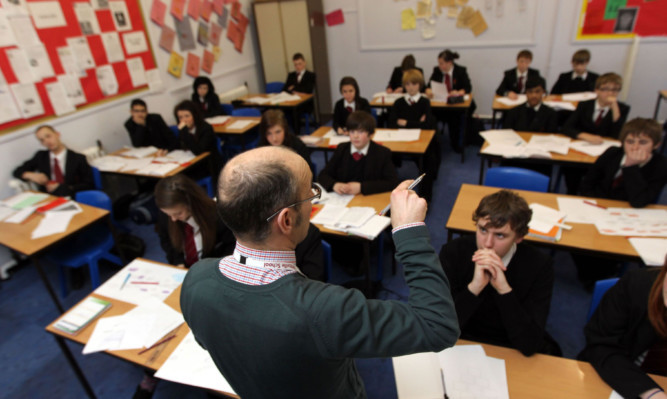A Fife woman is leading the charge to strip private schools of their charitable status.
Ashley Husband Powton, 22, delivered a petition to Holyrood calling for the special position to be abolished.
MSPs are now to ask the Scottish Government to consider reviewing decade-old legislation that determines whether private schools can keep their charitable status.
The legislation, overseen by the Office of the Scottish Charities Regulator (OSCR), includes a test that requires charities to provide a public benefit.
OSCR has reviewed 52 private schools since 2007 and failed 10, largely on the grounds that their means-tested assistance was “insufficient” and their provision of fee-free activities “minimal”.
All subsequently widened access and addressed other failings.
Ms Powton, a graduate student, has said she first became concerned about the issue after coming “face to face” with education inequality while studying at St Andrews University.
She told The Courier: “It really matters to me because of my personal experience. I’m not a politician or an academic.
“I went to state school but I came face to face with the elitism and the educational inequality in Scotland and in the UK at St Andrews.
“I disagree with private schools in principle but to find out they actually have charitable status just beggars belief.”
Ms Powton’s petition against the charitable status has garnered more than 300 signatures.
OSCR head of registration Martin Tyson told the committee he thought the testing of private schools for charitable status was “fit for purpose” but head of engagement Judith Turbyne said the regulator would be open to a review.
She said: “At the moment we feel that it’s workable, there are technical things that we’ve put forward, suggestions to ministers that we’d like to change.
“We’re favourable in reviewing the Act because we’re coming up for 10 years.
“We would be very pro that but I think that has to be something that takes all different sectors into account.”
MSPs backed a suggestion by Mr Wilson for the committee to write to the Scottish Government to clarify whether it intends to review the legislation in its tenth year.
FOR Why charitable status is justified
I feel very strongly that we more than justify the charitable status we are proud of, writes Dr John Halliday, rector of Dundee High School.
We work very hard to enable as many youngsters to come to the school as possible, whatever their financial means or background they come from.
Around 140 pupils receive some level of means-assessed financial support, ranging from 15% to 100% of fees, worth a total of £850,000 in 2014/15, or 8.5% of our turnover.
Nearly 20% of the secondary school receive some form of financial support.
Beyond that, we support Scottish education by having a disproportionate amount of teachers working for the SQA and we receive students on placements every year.
We also open our facilities to the wider community on a colossal scale 3,500 hours last year alone for organisations such as the Dundee Choral Union, National Youth Choir of Scotland, the CLIC-Sargent Choir to name but a few.
Our sports centre is open daily to the community providing more than 1,700 hours for users including sportscotland, the Scottish Rugby Union, Scottish Hockey, Sport Tayside, Scottish Fencing, Abertay University, regional indoor cricket, Dundee Wanderers Hockey Club etc etc.
This does not include more than another 800 hours of heavily subsidised use of our sports facilities by the Dundee Eagles rugby, the FP rugby and cricket clubs, both of which are open to all comers.
AGAINST Time to end the subsidy
In 2011, Fettes College in Edinburgh, an independent boarding and day school, had its tax liability cut from £209,139 to £41,828, a taxpayer-funded subsidy of £167,311, writes Ashley Husband Powten, the student who launched the petition.
Wester Hailes state school, also in the capital city, where over 40% of pupils are eligible for free school meals, paid its tax liability of £261,873 in full.
Charitable status means moral approval and staggering tax cuts for Scotland’s elitist and privileged private schools, which serve only 4% of pupils, while financially strapped state schools, which serve 96% of pupils, pay the full sum.
How can this be right or fair?
Private schools are at the very heart of a society divided by inherited wealth and privilege. They entrench and perpetuate social inequality.
The provision of some bursaries cannot be allowed to deflect from this.
Shifting the privilege slightly does not get rid of it.
Worryingly, the system of bursaries requires us to believe that allowing a child destined for state education access to a private school is of benefit to that child, a proposition that both devalues state education and insults the 96% of the population who attend them, as well as all those who teach in them.
Most importantly, no amount of mitigatory measures can be allowed to compensate for the perpetuation of a Scotland divided by inherited wealth and privilege.
